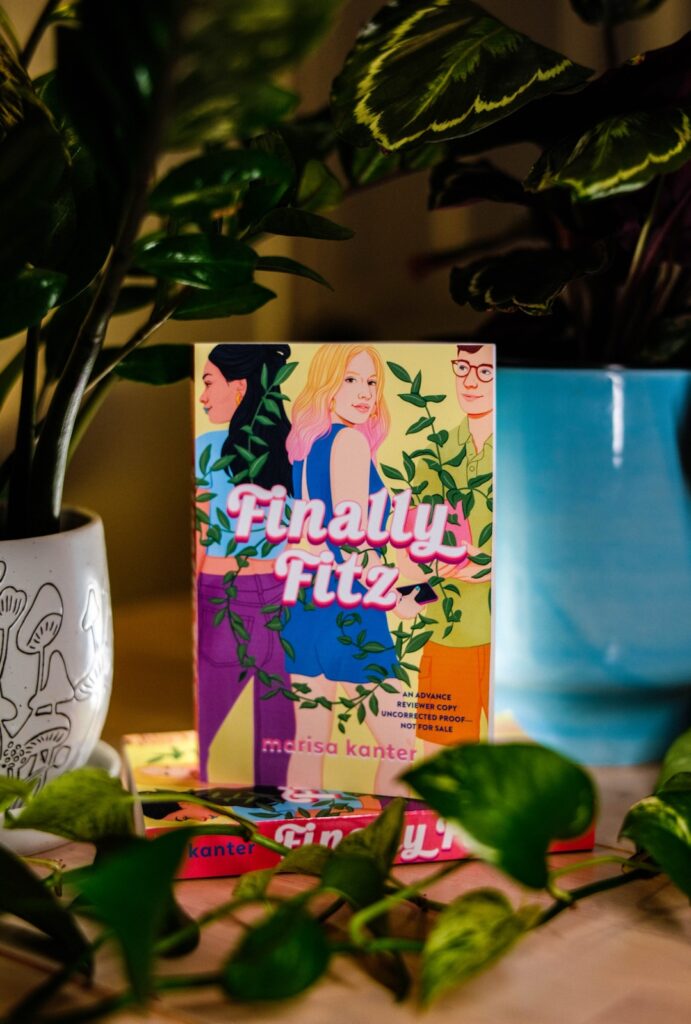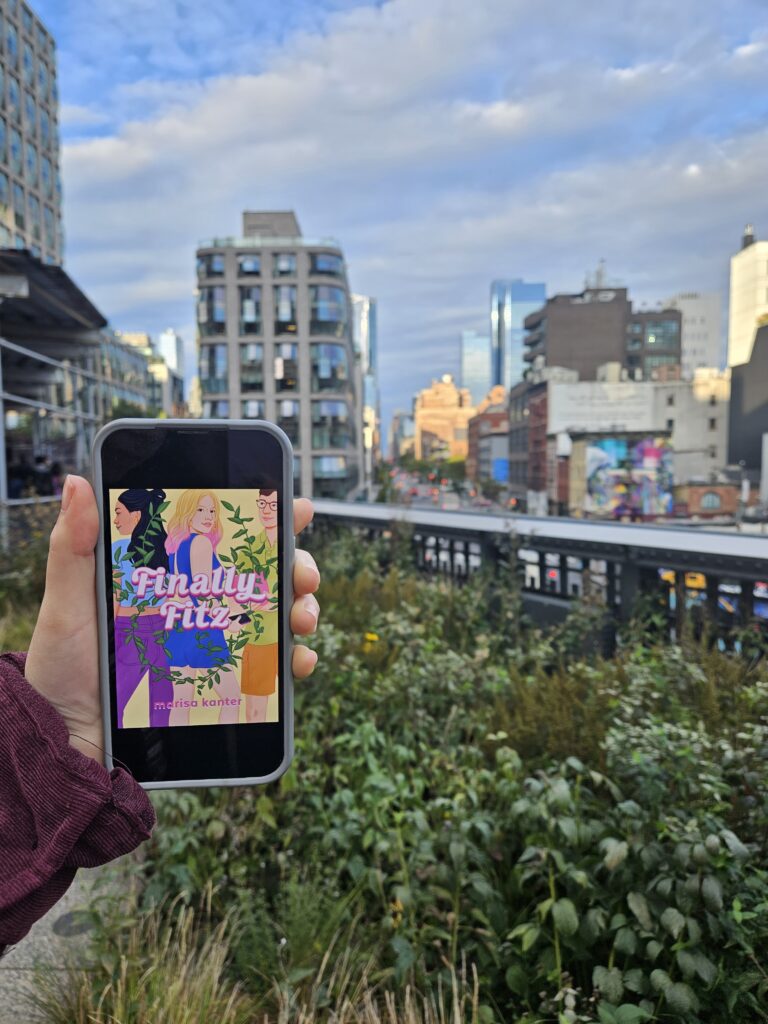On Learning to be Kinder to Your Imperfect Self, a guest post by Marisa Kanter

I’m seven. I rip out a page of a coloring book because I went outside the lines.
I’m ten. I forget a permission slip for a field trip on the day it’s due and hyperventilate.
I’m fourteen. It’s two a.m. and I’m still doing homework, painstaking coloring in a poster for the science fair.
I’m sixteen and I fall. I’m on stage at a dance competition and I prep for a double pirouette. It’s a basic turn, a move that I’ve executed effortlessly more times than I can count. But this time, on a stage, where I am a part of a team that is being judged . . . my ankle gives out. I fall. My instructor assured my sobbing, embarrassed self, that it’s okay. It happens. But the next time she choreographs a double pirouette into a routine, I am moved to the back. Because I fell, because I failed.
I’m seventeen and cannot crack the SAT math section. It makes no sense. I take AP Calculus. I’m good at AP Calculus. Why can’t I score above a 700? I’m not going to get into college. I study, study, study. Then I take the ACT and can breathe again because I do well enough, by my standards, to alleviate any fear of not getting into college.
ADVERTISEMENT
ADVERTISEMENT
I’m just a perfectionist.
No one notices.
Not teachers. I’m a pleasure to have in class.
Not my parents, who express pride.
I don’t even notice.
I’m just a perfectionist.
I spent years telling this to myself. I wore my perfectionism as a badge of honor. Attributed my successes it. Ignored the effects of the unrelenting pressure I put on myself. How it made me feel. Because as long as I wasn’t failing, I was fine. And for a long time, I believed that. I got into my dream school. I signed with a literary agent before I graduated from college. I had a book deal by the time I was twenty-two. Yes, I was a perfectionist. Sure, I was so hard on myself. But so what? It worked.
For a while.
Now, I want to rewind time. Go back, give that version of myself a hug.
Tell her, Stop being so hard on yourself.
Ask her, Did you know that perfectionism is a symptom of anxiety?
I can’t do that.
So instead, I wrote Finally Fitz.

Fitz is a self-proclaimed perfectionist and she sees nothing wrong with being that way. Even when the burnout—the inevitable burnout—comes for her, she searches for someone, something, anything to blame to blame it on. She is unable to even consider the alternative. Fitz is filtered, fun, fine. Always. Even when the people who surround her gently suggest that maybe, just maybe, she’s being a tad too hard on herself . . . she pushes back. Denies it. Resents it. How can a quality that has always aided in her successes be responsible for this sudden inability to create? If she strips away a label that has so defined her . . . who even is she?
In Finally Fitz, I wanted to write a mental health representation that felt true to my experience, one where the symptoms aren’t so obvious in a culture that conflates perfectionism with ambition. I can’t turn back time, but I can write for the kid I was. The kid who felt validated by that label, who believed being a perfectionist was a good thing. The kid who would go on to burn out by the age of twenty-five, seek therapy, and be diagnosed with anxiety. Reflecting back, it was always there. My anxiety.
At seven.
Ten.
Fourteen.
Sixteen.
Seventeen.

Sometimes, it’s not so obvious that someone is struggling. Sometimes, it’s the filtered, fun, fine people who are struggling the most. Fitz’s journey is personal, a story that I wouldn’t have been able to write until I reckoned with my own mental health. By the end of the book, Fitz learns not just that she needs to figure out how to be kinder to her imperfect self—and that her imperfect self is worthy of love.
Platonic love.
Romantic love.
Self-love.
I’m proud of where Fitz lands.
I’m proud of where I’ve landed too.
Meet the author

Marisa Kanter (she/her/hers) is a young adult author, amateur baker, and reality television enthusiast. She is the author of What I Like About You, As If on Cue, and Finally Fitz. Born and raised in the suburbs of Boston, her obsession with books led her to New York City, where she worked in the publishing industry to help books find their perfect readers. She currently lives in Los Angeles, writing love stories by day and crocheting her wardrobe by night.
Here is the book’s purchase link
About Finally Fitz
A bisexual teen girl tries to make her ex jealous by faking an Instagram romance that leads to surprisingly real feelings in this hijinks-filled rom-com perfect for fans of To All the Boys I’ve Loved Before and She Gets the Girl.
ADVERTISEMENT
ADVERTISEMENT
Ava “Fitz” Fitzgerald has worked hard to create the picture-perfect life she’s always wanted. She spent her junior year transforming her passion for sustainable fashion and upcycling into a viral online platform, maintaining a 4.0 GPA, and spending every free second with her soon-to-graduate girlfriend, Danica. And this summer she plans to take it all to the next level by attending a prestigious summer fashion program in New York City and convincing Dani that they can survive a year of long distance.
But when Dani dumps her before classes even start, accusing Fitz of being more invested in growing her online persona than deepening their relationship, she’s left not only heartbroken, but also creatively blocked.
Fitz will do anything to win Dani back, even if that means taking a break from the platform that she’s worked so hard to build. But just as she decides to go all-in on a hiatus, a chance encounter reunites her with Levi Berkowitz, her childhood best friend that she hasn’t seen since elementary school. Levi is struggling with heartbreak of his own, and this cosmic coincidence sparks a new use for her social media savvy. Fitz offers to help Levi craft a fake relationship online to make his person jealous…if in return he can pretend to be her boyfriend in front of Dani to make her jealous. If all goes according to plan, by the end of the summer they’ll both be reunited with their perfect partners and get to rekindle their friendship in the process.
Sometimes even the most carefully designed plans can come apart at the seams, though. And when real history leads to not-so-fake feelings, Fitz will have to decide if she’s finally willing to let go of what she thought was picture-perfect and choose what might actually be right for her.
ISBN-13: 9781665926072
Publisher: Simon & Schuster Books For Young Readers
Publication date: 04/23/2024
Age Range: 12 – 18 Years
Filed under: Guest Post
About Amanda MacGregor
Amanda MacGregor works in an elementary library, loves dogs, and can be found on Twitter @CiteSomething.
ADVERTISEMENT
ADVERTISEMENT
SLJ Blog Network
Endangered Series #30: Nancy Drew
Research and Wishes: A Q&A with Nedda Lewers About Daughters of the Lamp
Cat Out of Water | Review
ADVERTISEMENT







